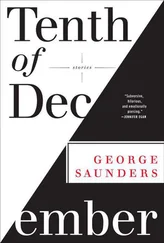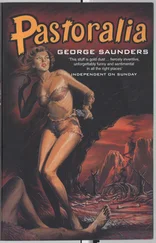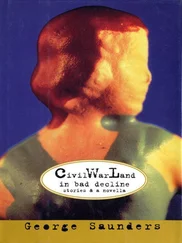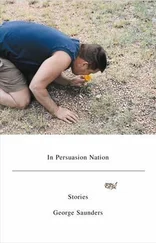Love you, you f — ing f — er.
betsy baron
No.
No no no. Don’t. Don’t do it.
Stay the f— with me, kid.
eddie baron
Her flesh became thin as parchment. Tremors ran through her body. Her form flickered between the various selves she had been in that previous place (too debauched and impoverished and shameful to mention) and then between the various future-forms she had, alas, never succeeded in attaining: attentive mother; mindful baker of bread and cakes; sober church-attender; respected soft-spoken grandmother surrounded by her adoring, clean brood.
roger bevins iii
Then came the familiar, yet always bone-chilling, firesound associated with the matterlightblooming phenomenon.
hans vollman
And she was gone.
roger bevins iii
Her threadbare and malodorous clothing raining down all around.
hans vollman
Mr. Baron let loose a prodigious howl of obscenities and succumbed, albeit reluctantly, compelled by his inordinate affection for that lady, the color of his matterlightblooming phenomenon not the usual luminous white, but, rather, a dingy gray.
roger bevins iii
Smelling of tobacco, sweat, and whiskey, his clothes came raining down.
hans vollman
And a racing form, and an obscene cartoon.
roger bevins iii
CII.
Suddenly Mr. Bevins did not look well.
His flesh was thin as parchment. Tremors ran through his body.
hans vollman
So many memories were flooding back.
I recalled a certain morning. The morning of my—
The morning that I—
I had seen Gilbert. At the baker’s.
Yes. Yes I had.
My God.
He was — ah, most painful! He was with someone. A man. Dark-haired, tall. Broad-chested. Gilbert whispered something to him and they shared a laugh. At my expense, it seemed. The world went flat. It seemed a stage-set built for the telling of a specific joke, to be told on me: having been born with my propensity, I would find Gilbert, come to love him, but would not be able to be with him (for he wished to “live correctly”), and then the punch line: me, crestfallen in that baker’s doorway, loaf in hand, the two of them approaching, pausing — the whisper, the laugh — and they broke around on either side of me, this new fellow (he was so beautiful) raising an eyebrow, as if to say: That? That is him?
Then another killing laugh-burst.
I rushed home and—
Proceeded.
roger bevins iii
Mr. Bevins dropped to his knees.
His form flickered between the various selves he had been in that previous place:
An effeminate but affectionate young boy, much fussed over by a family of sisters;
A diligent student, crouched over multiplication tables;
A naked young man in a carriage house, reaching over to tenderly kiss that Gilbert;
A good son, posed between his parents for a daguerreotype on the occasion of his birthday;
A red-faced distraught disaster, tears rolling down his face, butcher knife in hand, porcelain tub in his lap.
Do you remember, he said. When I first came here? You were so kind to me. Calmed me down. Convinced me to stay. Do you remember?
I was happy to be of service, I said.
I just remembered something else, he said, in a tone of wonder. Your wife once came to visit.
hans vollman
I do not recall any such occurrence, Mr. Vollman replied stiffly. My wife, believing my recovery best aided by a period of solitude, prefers not to visit.
Friend, I said. Enough. Let us speak honestly. I am remembering many things. And I suspect that you are, too.
Not at all, Mr. Vollman said.
A plump, beaming woman came here, I said. A year or so ago. And recounted many things, happy things concerning her life (her numerous children, her excellent husband), and thanked you — thanked you, imagine — for your early kindness to her, which had, as she put it, “allowed me to deliver myself, unsullied, to he who would prove to be the great love of my life.” She thanked you for placing her “on the path to love,” and for never (never once) being unkind to her, but always gentle, and dear, and considerate. “A true friend,” she called you.
Tears were rolling down Mr. Vollman’s face.
She did you the honor, sir, of coming to say goodbye and, standing at your grave, explained that she would not, in future, be able to join you there, as she must, instead, eventually, lie beside this new fellow, her husband, who was—
Please, Mr. Vollman said.
Who was much younger, I said. Than you. Closer, that is, to her own age.
You, Mr. Vollman said abruptly. You cut your wrists and bled to death on your kitchen floor.
Yes, I said. Yes I did.
Many years ago, he said.
So many years ago, I said.
Ah, God, Mr. Vollman said, and his flesh grew thin as parchment, and tremors ran through his body, and his form began to flicker between the various selves he had been in that previous place:
Fresh-faced apprentice in an ink-stained smock;
Young widower, wiping away tears for his first wife, fingernails blue-rimmed with his work, despite an obsessive pre-funeral scrubbing;
Lonely middle-aged fellow, with no hopes at all, who only worked and drank and (in a depressed state) occasionally whored;
A heavy-set, limping, wooden-toothed forty-six-year-old printer, glimpsing, from across the parlor, at the Wicketts’, upon New Year’s Day, a radiant young woman in a lime dress (little more than a girl, really), and in that moment, he felt himself no longer old, but young (interesting, vital, dashing), and, for the first time in years, felt he had something to offer, and someone to whom he hoped he might be allowed to offer it.
roger bevins iii
Shall we? Mr. Bevins said. Shall we go together?
And assumed his various future-forms (forms he had never, alas, succeeded in attaining):
A fine-looking young man on the prow of a ship, gazing off at a row of yellow and blue houses just coming into view upon a distant shoreline (and on that voyage he had been fucked and fucked well by a Brazilian engineer, who had taught him much and given him much pleasure) (and now Mr. Bevins knew that that life was for him, whether it be good or not in God’s eyes);
The contented lover, for many years now, of a gentle, bearded pharmacist named Reardon;
A prosperous, chubby, middle-aged fellow, nursing poor Reardon through his final illness;
An old geezer of nearly a hundred, blessedly free of all desire (for man, food, breath) being driven to church in some sort of miracle vehicle, before which stood no horse, and which went about on rubber wheels, loud as some perpetually firing cannon.
hans vollman
Yes, all right, Mr. Vollman said. Let us go. Together.
roger bevins iii
And it seemed we had passed the point of choosing. The knowledge of what we were was strong within us now, and would not be denied.
hans vollman
And yet something held us back.
roger bevins iii
We knew what.
hans vollman
Who.
roger bevins iii
Of one mind now, we flew-skimmed east (erratically, caroming off boulders and hillocks and the walls of stone homes, like wounded birds, feeling nothing but urgency to reach our destination), flickering on and off, weak and growing weaker, sustained, barely, by some lingering, dissipating belief in our own reality, east and east and east, until we reached the edge of that uninhabited wilderness of some several hundred yards.
hans vollman
That ended in the dreaded iron fence.
roger bevins iii
CIII.
The Traynor girl lay as usual, trapped against and part of the fence, manifesting at that moment as a scaled-down smoking wreck of a rail car, several dozen charred and expiring individuals trapped within her barking out the most obscene demands as Miss Traynor’s “wheels” turned mercilessly upon several hogs, who (we were given to understand) had caused the crash, and possessed human faces and voices, and were crying out most piteously as the wheels turned and turned and crushed and re-crushed them, giving off the smell of burning pork.
Читать дальше












